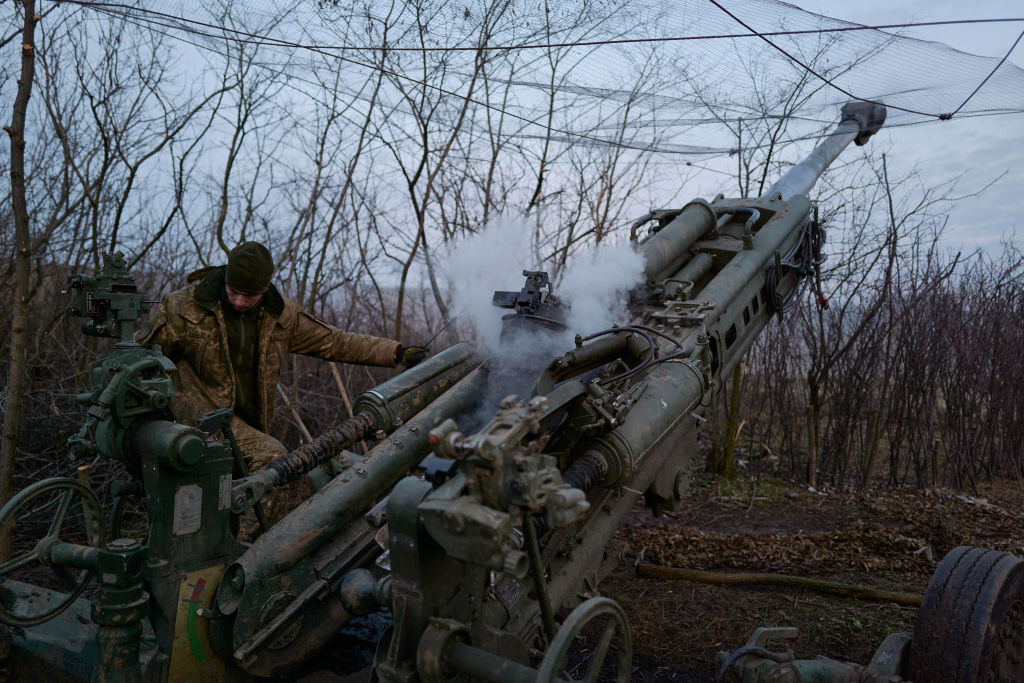We are entering the 12th month of a “special military operation” that was supposed to be over in well under 12 days. The Kremlin even told Russian officers to pack dress uniforms and medals for the intended military parades in Kyiv a few days after the shooting started.
Things turned out differently. Having launched the first land war in Europe since 1945 with the expressed intent to stop both the expansion of NATO eastward and the political and economic migration of Ukraine westward, Putin is already well on his way to being remembered for making one of the great strategic blunders in living memory.
Finland—which shares more than 800 miles of border with Russia—and Sweden are applying to NATO. The process to admit Ukraine to the European Union is underway, and Ukraine’s military is rapidly switching to newer, better, and NATO-compatible weapons. Germany, which recently agreed to ship tanks to Ukraine, has jettisoned much of its non-interventionist foreign policy and committed to much more robust defense spending. Putin’s longstanding strategy of using energy to hold Western Europe hostage has largely backfired.
China, which made a big show of its “no limits” partnership with its neighbor, has so far offered only extremely limited support for Russia. It’s almost as if the Beijing government is embarrassed by its ally’s pathetic showing—which appears to have taken the Chinese leaders by surprise.
In short, these are wildly momentous events, which mostly redound to the benefit of American national security. But you wouldn’t necessarily know that from political debates about Ukraine. Indeed, there’s an otherworldly aspect to the whole conversation.
For instance, going into the midterms, Rep. Kevin McCarthy, now the House speaker, settled on the talking point that Republicans wouldn’t give Ukraine a “blank check” the way Democrats had. But that wasn’t happening.
As the Hudson Institute’s Luke Coffey noted at the time, most of the dollars “allocated for military assistance to Ukraine never leave the United States,” he wrote. “Funds for military support are not wired to Ukrainian government bank accounts.” We send Ukraine weapons—including, eventually, Abrams tanks—and other equipment and that money goes toward replenishing our stockpiles.
President Joe Biden has handled things fairly well behind the scenes, but his public statements tend to be weighed down by things he won’t do—like sending tanks and other weapons systems—but that he inevitably ends up doing. He’s also very fond of insisting—for more understandable reasons—that we will not be sending American troops to fight in Ukraine. Indeed, the only thing that garners bipartisan support regarding Ukraine is that we shouldn’t get into a direct war with Russia and therefore NATO shouldn’t do anything that “provokes” Putin.
Provoke him to do what, exactly? Invade Ukraine and target civilians by the millions? He’s doing that already. Not supplying these weapons in a more timely manner was what was actually provocative. The dithering encouraged Putin to wage a missile and artillery war on Ukrainian population centers in the hope that he could beat Ukraine into submission before the West realized it needed to send the weapons Ukraine needed.
No one wants a nuclear war, of course. Which is why Russia keeps threatening one. If the policy is going to be, Russia can do whatever it wants because it has nuclear weapons, then make that argument.
But if the strategic goal is for Ukraine to win back its own territory using its own troops, then the tactical imperative is to give Ukraine what it needs to win. Normally, when America sends troops to fight, the refrain from critics is to let the Iraqis or Afghans or whomever fight for their own freedom. That’s what Ukraine is doing.
Mitt Romney was right—and Barack Obama was wrong—in 2012 when he described Russia as our “geopolitical foe.” Enabling Ukrainians to degrade Russia is in our national interest. And, if the new “nationalist” Republicans were serious about the sanctity of national borders, they’d recognize that Ukraine is literally the frontline of that fight.
Some seem to think it’s provocative to let Russia believe NATO is using Ukraine as a proxy for its interests. But that horse left the barn long ago. That’s the official Russian view, blared out constantly on Russia state media. Russian Security Council Secretary Nikolai Patrushev recently declared, “The events in Ukraine are not a clash between Moscow and Kyiv—this is a military confrontation between Russia and NATO.” Moscow is “not dealing with Ukraine—we’re past that,” primetime Russian TV host Vladimir Solovyov announced last October. We’re dealing with the entire NATO bloc, with the might of its military industrial complex.”
If only that were true.







Please note that we at The Dispatch hold ourselves, our work, and our commenters to a higher standard than other places on the internet. We welcome comments that foster genuine debate or discussion—including comments critical of us or our work—but responses that include ad hominem attacks on fellow Dispatch members or are intended to stoke fear and anger may be moderated.
With your membership, you only have the ability to comment on The Morning Dispatch articles. Consider upgrading to join the conversation everywhere.